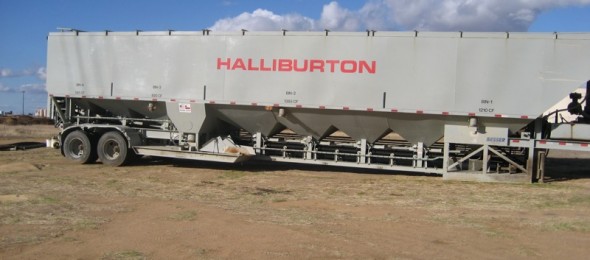Texas’ First District Court of Appeals in Houston has affirmed a trial court’s ruling that it was up to an arbitral panel to determine whether it had jurisdiction to hear a corporate tax dispute. In Halliburton Co. v. KBR, Inc., No. 01-12-00949-CV, (Tex. App – Houston, September 11, 2014), Halliburton spun off its wholly-owned subsidiary KBR in 2007. Prior to the separation, the companies entered into a number of agreements including a Master Services Agreement (MSA) that referenced a Tax Sharing Agreement (TSA). Both contracts included an arbitration clause. The MSA provided for arbitration by a panel of three arbitrators from the American Arbitration Association while the TSA stated “arbitration would be conducted by a single person from an accounting firm, known as an Accounting Referee.” In addition, the MSA stated the arbitral panel would determine the issue of arbitrability while the TSA was silent on the matter.
In 2011, Halliburton sought to recover about $256 million in alleged tax liabilities the company claimed it paid on behalf of KBR prior to the corporate separation. KBR responded by stating the tax account was settled in advance of the corporate spin-off. After the companies could not come to a mutually agreed-upon resolution, Halliburton sought to appoint an Accounting Referee under the provisions of the parties’ TSA. KBR argued the request was premature. According to KBR, the terms of the MSA required that a determination regarding whether Halliburton was entitled to pursue its tax liability claim be made by a panel of arbitrators before an Accounting Referee could be appointed. The company also argued Halliburton’s claim was barred by a two-year time limit included in the MSA.
Next, KBR demanded arbitration pursuant to the terms of the MSA. In its demand, the company asked that a panel of three arbitrators determine that:
(1) Halliburton’s overpayment claim for $256 million was discharged when KBR paid the notes it owed for settlement of the intercompany account; (2) Halliburton released its overpayment claim pursuant to the release provisions of the MSA; and (3) Halliburton’s overpayment claim is time-barred under the MSA’s limitations provision.
Meanwhile, Halliburton filed a motion to compel arbitration under the terms of the parties’ TSA and asked a trial court to stay arbitral proceedings under the MSA. KBR filed a cross-motion stating it was up to the arbitral panel to determine which arbitration provision controlled the parties’ dispute. The trial court denied Halliburton’s motion and granted KBR’s cross-motion.
In response, Halliburton filed an interlocutory appeal with Texas’ First District Court of Appeals in Houston. While the appeal was pending, an arbitration panel issued a written award stating it had jurisdiction over the dispute and that Halliburton’s TSA claims were barred by a provision in the MSA. Despite this, the panel ordered the companies to return to the Accounting Referee for a final award under the terms of the TSA. In the end, the Accounting Referee issued an award of approximately $104.5 million in favor of Halliburton.
Halliburton filed a motion to vacate the arbitral panel’s award with the trial court and argued the arbitrators lacked jurisdiction over the dispute. Although that motion was not yet ruled upon, the Houston Court of Appeals finally considered Halliburton’s interlocutory appeal. KBR then filed a motion to dismiss the appeal for lack of jurisdiction. After determining it had jurisdiction to consider the appeal, the appellate court addressed the merits of the case.
According to the appeals court, “the MSA and the TSA must be harmonized and construed together as one contract.” Because of this, the court held:
Reading the TSA and MSA as one, integrated agreement, we conclude that the AAA Panel was the proper tribunal to determine whether KBR’s defensive claims should be arbitrated under the TSA or under the MSA. No conflict exists between the TSA and MSA with respect to the issue of arbitrability, which is not addressed in the TSA. We make no determination whether KBR’s defensive claims fall within the scope of the TSA arbitration provision or within the MSA arbitration provision. That determination is one of arbitrability reserved for the arbitrators in this case.
We hold that the trial court could have properly determined that the AAA Panel was authorized, under the MSA arbitrability provision, to determine its own jurisdiction to arbitrate KBR’s defensive claims. Thus, we further hold that the trial court did not err in denying Halliburton’s application to compel arbitration.
Since the Houston court had jurisdiction to hear the appeal and the trial court did not commit error, Texas’ First District Court of Appeals denied KBR’s motion to dismiss the appeal and affirmed the lower court’s order denying Halliburton’s motion to compel arbitration.
Photo credit: friendofdurutti / Foter / CC BY














